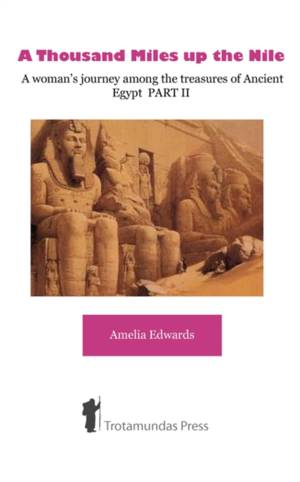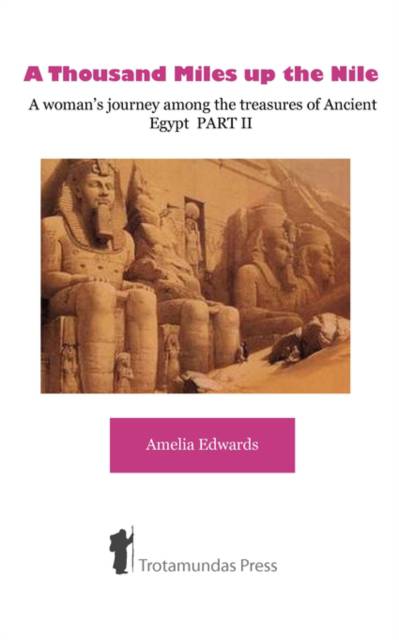
- Afhalen na 1 uur in een winkel met voorraad
- Gratis thuislevering in België vanaf € 30
- Ruim aanbod met 7 miljoen producten
- Afhalen na 1 uur in een winkel met voorraad
- Gratis thuislevering in België vanaf € 30
- Ruim aanbod met 7 miljoen producten
Zoeken
A Thousand Miles up the Nile - A woman's journey among the treasures of Ancient Egypt PART II
A Woman's Journey Among the Treasures of Ancient Egypt
Amelia Edwards
Paperback | Engels
€ 16,95
+ 33 punten
Omschrijving
Travelling by dahabiah, a well-appointed sailing craft peculiar to the Nile, and armed with sketch-book and measuring tape, Amelia Edwards carefully recorded all she saw of the temples, graves, and monuments - even discovering a buried chapel of her own- and provided in A Thousand Miles Up The Nile the first general archaeological survey of Egypt's ruins. The book is full of historical footnotes and careful details. Amelia Edwards was responsible for founding the first chair in Egyptology (a science she helped create) at University College London, and was behind the appointment of Sir Flinders Petrie. She established herself as one of the authorities on the subject of Ancient Egypt and her book A Thousand Miles Up the Nile has remained one of the most inspiring travel books in the subject.
Specificaties
Betrokkenen
- Auteur(s):
- Uitgeverij:
Inhoud
- Aantal bladzijden:
- 304
- Taal:
- Engels
Eigenschappen
- Productcode (EAN):
- 9781906393151
- Verschijningsdatum:
- 21/01/2009
- Uitvoering:
- Paperback
- Formaat:
- Trade paperback (VS)
- Afmetingen:
- 127 mm x 203 mm
- Gewicht:
- 303 g

Alleen bij Standaard Boekhandel
+ 33 punten op je klantenkaart van Standaard Boekhandel
Beoordelingen
We publiceren alleen reviews die voldoen aan de voorwaarden voor reviews. Bekijk onze voorwaarden voor reviews.











